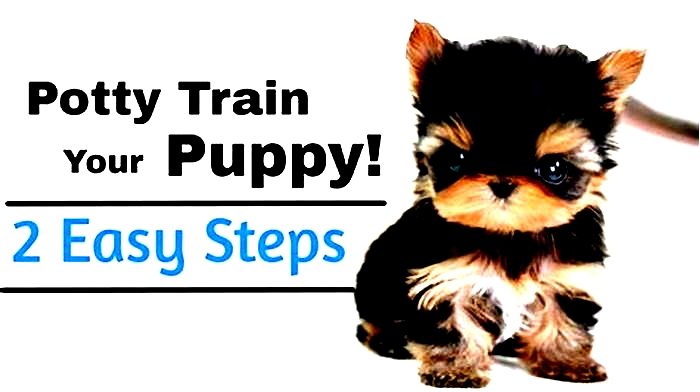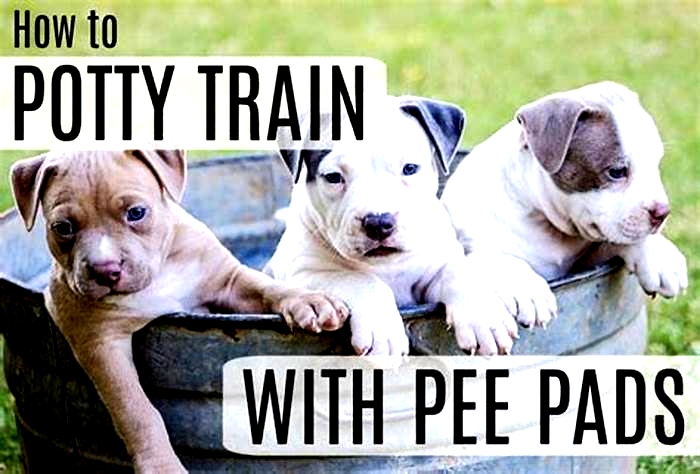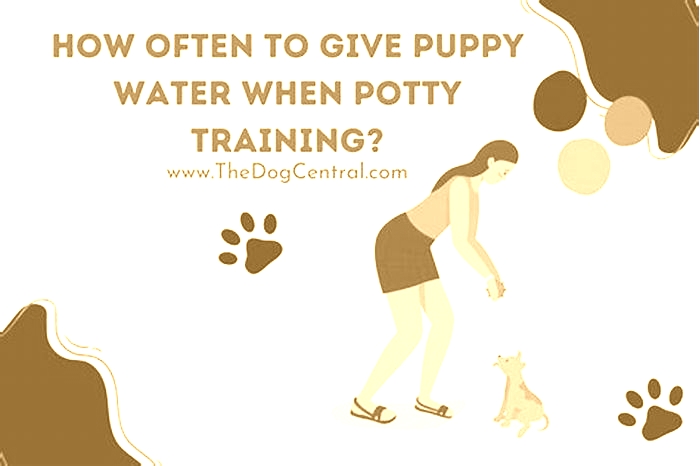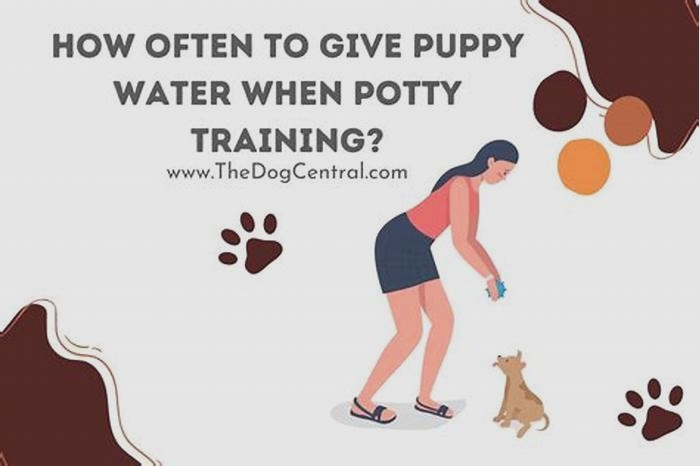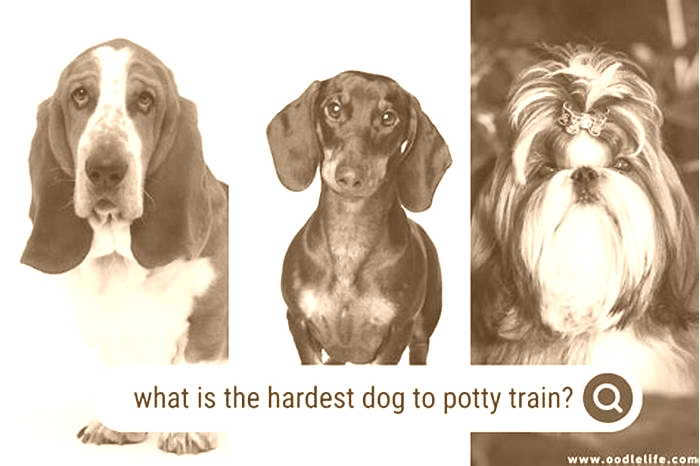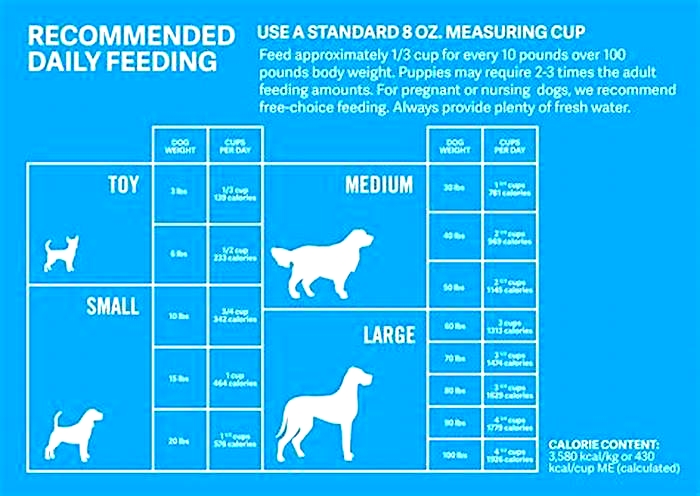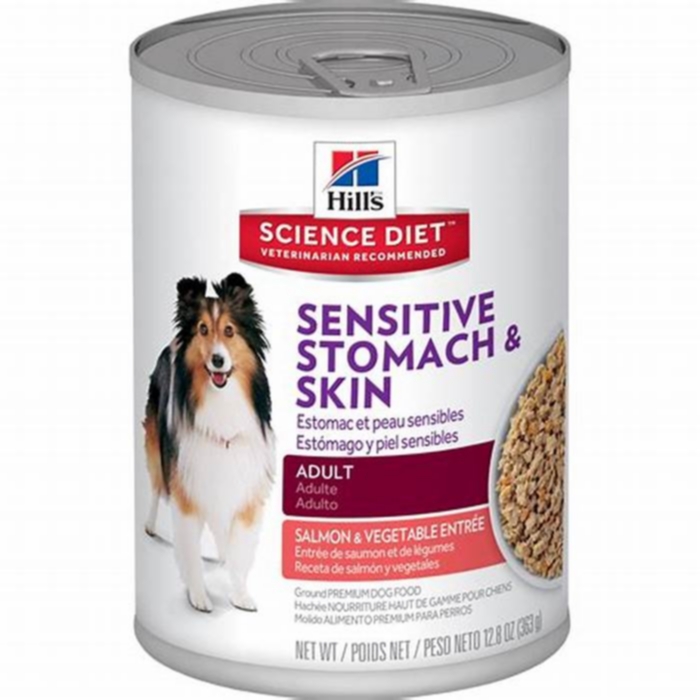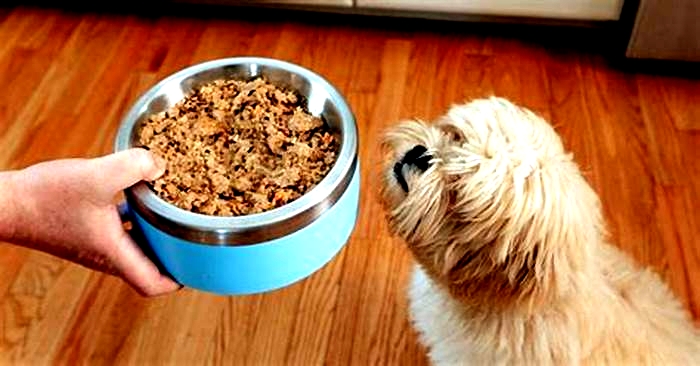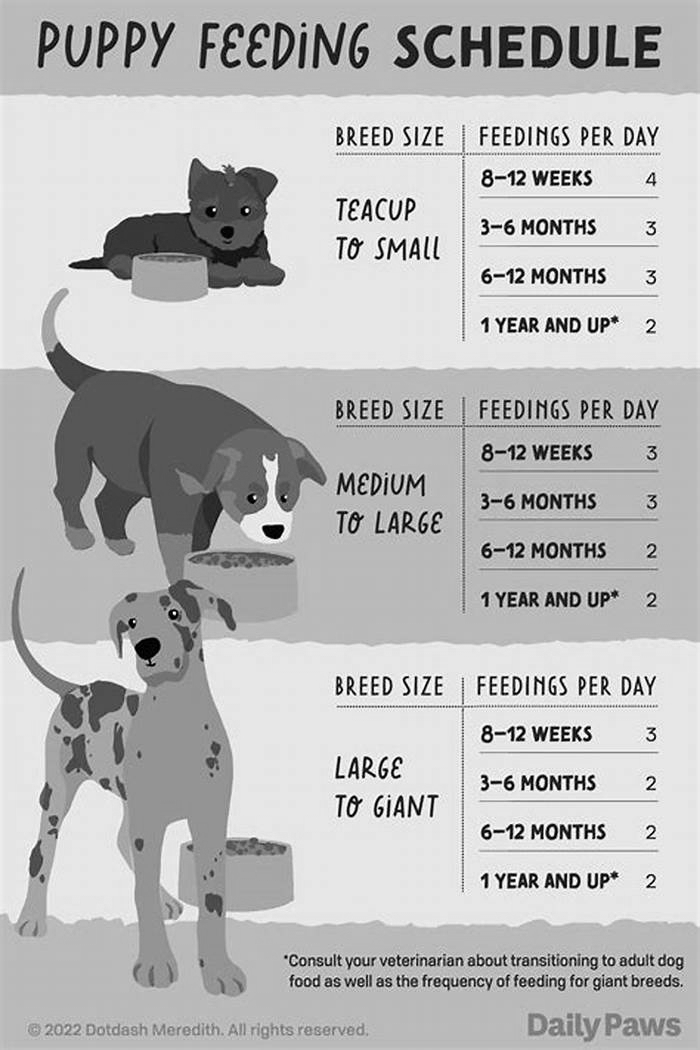At what age should a puppy be potty trained
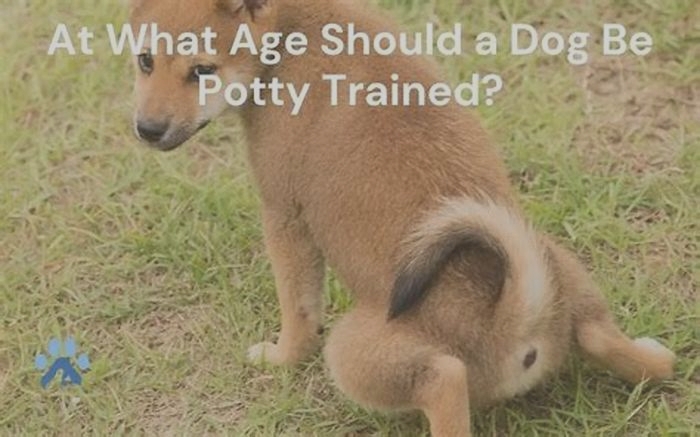
What Age Should A Puppy Be Toilet Trained (& When To Start)
At what age should a puppy be completely toilet trained? Well, its a tough question with no specific answer. But let us try;
It usually takes around 4-6 months to completely potty train a puppy, so if you started training your pup at 12 weeks (3 months old), then he should be trained by the age of 7-9 months. However, there are several things to consider to reach a final answer.
Potty training your pup is The Priority when bringing the little one home. It is also the biggest cause for the existence of animal shelters and many dogs finding themselves homeless. Sad!
When To Start Potty Training A Puppy? Optimal Age To Start Housebreaking?
According to pet experts, the optimal time to begin potty training your pup is when your pup is 3 to 6 months old (about 12 to 24 weeks). By then they should have enough control of their bowel and bladder that they can learn how to hold, or at least go to the designated place where they are allowed to do their business.
If the puppy is brought from a puppy mill or pet shop, things will be different for him. The same is the case for older dogs and stray dogs.
Constant observation, timely intervention, positive reinforcement, and reward/treat-based encouragement will help you in guiding your pup from scattering smelly mishaps all-around your house to a parent-approved good pup. Just remember not to be harsh on the little one as it never helps and only affects the pup adversely.
Our objective is just to instill good behavior and lay the foundation for a hassle-free future. For this to happen, your pup should not be potty shy around you.
Can You Start Potty Training Early?
However, if you wish to reduce the number of smelly mishaps in your house, you can begin potty training your pup when it is only 6-8 weeks old.
Take your pup outside frequently, like every hour for it to grasp the concept of doing its business outside of the home. But, be sure to go easy on the little one and keep your expectations realistic.
Otherwise, it is best to put a dog diaper on your pup until they learn to be a good pup. Potty training your pup will not only make your house happy but will also get you future benefits.
Remember, starting housetraining early will not result in getting excellent results. You should expect only prevention from some accidents and developing good habits. The optimal age to start housetraining is around 12-24 weeks, depending on several factors.
Factors That Effect The Age A Puppy Should Be Potty Trained:
There are several factors that affect the answer to this question.
Before that, go and check this article about How long does it take to potty train a puppy?. You will have a clear idea of what factors affect the time taken. The article will be opened in a new tab, so go read that and come here again!
A very important factor that affects the age a puppy is potty trained; that is for how long a puppy can hold the bladder.
The longer the puppy will be able to hold the bladder, the easier it will be.
For How Long A Puppy Can Hold The Bladder?
As a general rule of thumb, a puppy can hold his bladder for one hour for every month of age. For example, a 4 months old puppy should be able to hold the bladder for 4 hours. However, after the age of 7 months, this rule changes. A dog of 7+ months of age should be able to control the bladder for 8+ hours, some even go up to 12 hours.
These factors that affect the time a puppy can hole the bladder, are;
1- Age
Age is the most prominent factor that determines how long your pup can gap between bathroom breaks. Pups due to their small and under-developed bladders, cannot hold their pee for as long as a fully grown dog can.
Usually, a puppy can control their bladder for one hour for each month of age they are. Hence, if your pup is 5 months old, it can hold it for about 5 hours. But do know that this is a general approximation and tolerance towards your puppy will go a long way.
2- Size
The size of your pet is the other important factor. A tiny/toy breed dog such as a Pomeranian will have a very small bladder and thus, will need to urinate more frequently.
3- Health
The health of your pup can also be a factor in its need for frequent urination. If you are concerned that your pup is peeing more frequently than normal or is taking longer in doing so, it is advised to take your pup to a vet.
Read about: Medical conditions that might be hindering the process of potty training your puppy!
4- Breed
Some Breeds are able to control their bladder for longer because of their large size and strong muscles. Obedience and intelligence is another thing that comes with the breed.
In general, giant/big breeds like Leonberger are way easier to potty train. Big breeds understand that the house is their bed more easily than the small breeds. But there are exceptions.
Read More: Hardest and Easiest dog breeds to potty train?
5- Diet
The type of food that you feed to your pup is the final major component in their urinary routine and health. Raw and wet food which are rich in moisture can increase the frequency and the amount of their urination.
Although your pup may need to pee a bit more often, but do keep in mind that hydration is always good for their appearance and the internal body organs.
How long will it take?
It should always be kept in mind that just like humans, every pup is unique.
Some may learn faster than others.
Usually, it takes 4 to 6 months for a pup to be potty trained by a normal non-expert person.
If you are not consistent with your actions or in gestures or in use and tone of the specific command when training your pup, your pup will become confused and not understand what is expected of it. Thus, attaining the desired result is entirely dependent upon you.
Pups that are past their optimal age for being potty trained or have been caged or have been forced to poop where they sleep, become desensitized. In such cases it can even take a year for your pup to be house trained as reshaping a pups behavior takes longer. The only way to make their life better and in turn, yours a happy one, is through reward/treat encouragement and positive reinforcement. May you Persevere!!
Read in detail: How long does it take to potty train a puppy?
How Do You Know When Your Puppy Is Potty Trained?
When your puppy stops having accidents at home! He tells you that he needs to go by staring at you, showing other signs, or ringing the bell. He may go to his potty spot by himself, (if thats in his range) for at least 2 weeks, then you can say that now your puppy is potty trained. But know that; some puppies can reverse their training, thats called puppy potty training regression. Learn more about it.
How Old Before a Puppy Is Fully Potty Trained?
Your puppy brings such joy and laughter -- until you step in a little present she left behind when she couldn't make it outside in time. House-training a puppy is a lesson in patience, and it's not always over quickly. Some puppies have it down pat in just a few weeks, while others take closer to a year.
Age to Start
Most puppies aren't able to control when they go until they are at least 12 weeks old. After she's about 6 weeks old, you can start taking her outside at least every hour to give her the chance to go. While this can cut down on indoor accidents, she won't be ready for true house-training until 12 weeks.
Learning the Basics
Most puppies have a good understanding of where they're supposed to potty after about a month of house-training. By the time she is 4 months old, your pup knows to wait for you to take her outside, and she might understand ways to tell you she has to go, such as barking or scratching at the door. However, she's still young, so you should expect accidents. According to the Humane Society of the United States, your puppy can hold her bladder for about one hour per month of her age. For example, at 4 months old, she can likely wait about four hours between potty trips. This can vary depending on how much she has to drink and exciting events that occur, such as if guests are coming in and out the door -- she's more likely to have an accident when she's excited.
Potty Pro
Many dogs are fully house-trained by 6 months old, but don't be discouraged if your pooch has accidents through 12 months old. Every dog is different, and some take a bit longer to make it to professional potty level. Small dogs tend to be fully house-trained later than large dogs because they have smaller bladders and higher metabolisms, meaning they must go out more often. This can lead to more frequent accidents during the housebreaking process.
How You Can Help
To help your puppy house-train faster, be consistent about taking her outside often to give her an opportunity to go potty. Using a crate can help, because dogs prefer not to go where they sleep. If you must leave her for longer than her bladder can handle -- when you go to work, for example -- put her open crate in a small room, such as the bathroom, with puppy pads on the other side of the room. This gives her a place to relax and a place to potty without soiling her bed. Keep some toys, food and water near the crate as well. When you get home, take her out immediately, and plan to get up at least once during the night until she's about 6 months old.
How to potty train your puppy or dog
House training (also known as potty training or housebreaking) your dog or puppy requires patience, commitment and lots of consistency. Accidents are part of the process, but if you follow these basic house training guidelines, you can get the newest member of your family on the right track.
How to potty train your puppy
Establish a routine
Puppies do best on a regular schedule. The schedule teaches them that there are times to eat, times to play and times to do their business. Typically, a puppy can control their bladder one hour for every month of age. So if your puppy is 2months old, they can hold it for about two hours. Don't go longer than this between bathroom breaks or theyre likelyto have an accident.
Take your puppy outside frequentlyat least every two hoursand immediately after they wake up, during and after playing, and after eating or drinking.
Pick a bathroom spot outside, and always take your puppy (on a leash) to that spot. While your puppy is relieving themselves, use a specific word or phrase that you can eventually use before they go to remind them what to do. Take them out for a longer walk or some playtime only after they have eliminated.
Rewardyour puppy every time they eliminate outdoors. Praise or give treatsbut remember to do so immediately after theyve finished, not after they come back inside. This step is vital, because rewarding your dog for going outdoors is the only way to teach what's expected of them. Before rewarding, be sure theyre finished. Puppies are easily distracted and if you praise too soon, they may forget to finish until theyre back in the house.
Put your puppy on a regular feeding schedule. What goes into a puppy on a schedule comes out of a puppy on a schedule. Depending on their age, puppies may need to be fed two or three times a day. Feeding your puppy at the same times each day will make it more likely that they'll eliminate at consistent times as well, making house training easier for both of you.
Pick up your puppy's water dish about two and a half hours before bedtime to reduce the likelihood that they'll need to relieve themselves during the night. Most puppies can sleep for approximately seven hours without needing a bathroom break. If your puppy does wake you up in the night, don't make a big deal of it; otherwise, they will think it is time to play and won't want to go back to sleep. Turn on as few lights as possible, don't talk to or play with your puppy, take them out to the spot where they relieve themselves and then return them to bed.

